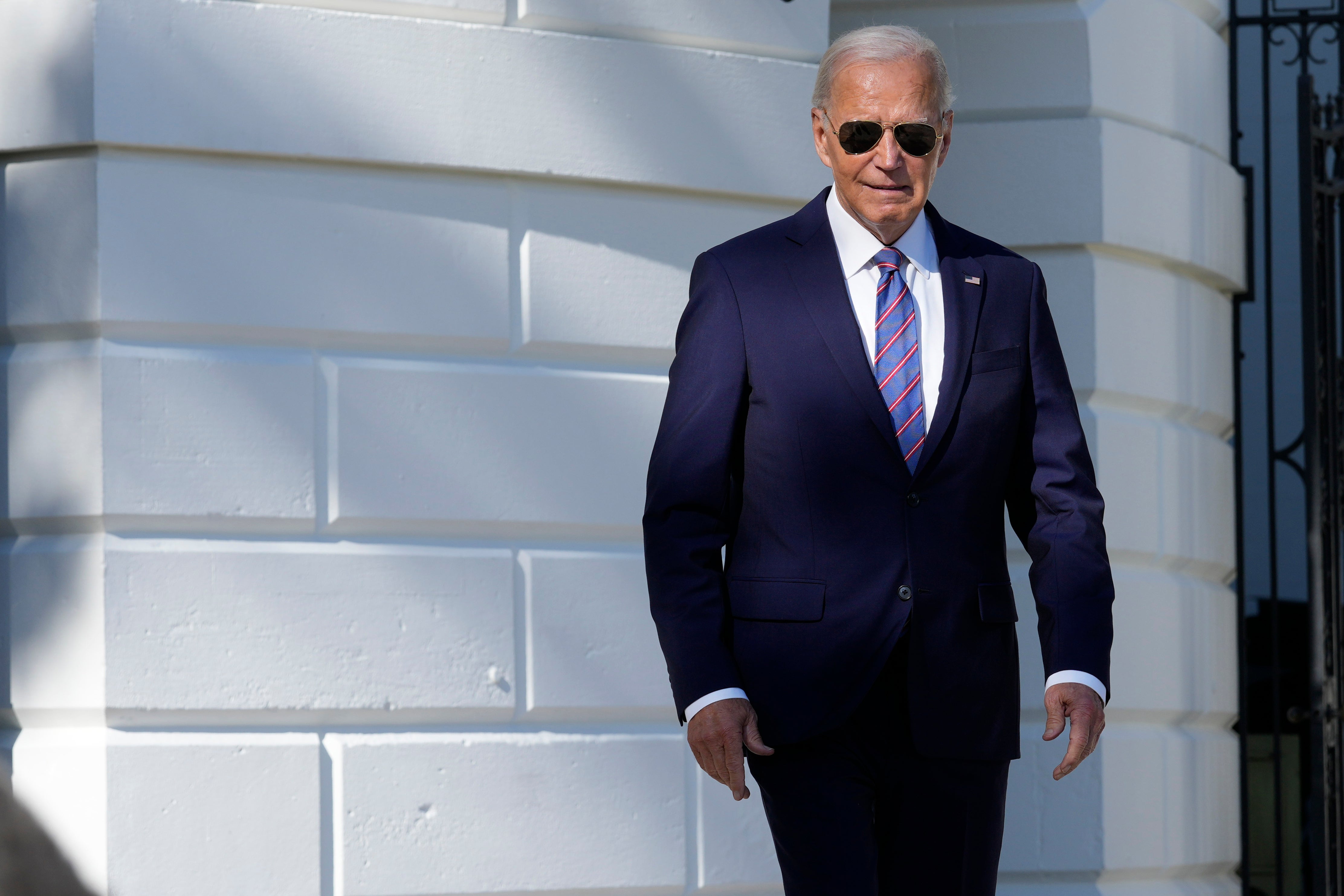Biden marks the 30th anniversary of the passage of the landmark Violence Against Women Act
As part of the 30th anniversary of the signing of the landmark Violence Against Women Act, the White House on Thursday is announcing new efforts to address online harassment and abuse, and to help ease housing issues that many survivors of domestic violence face when they are trying to escape abusers

As part of the 30th anniversary of the signing of the landmark Violence Against Women Act, the White House on Thursday is set to announce new efforts to address online harassment and abuse, and to help ease housing issues that many survivors of domestic violence face when they are trying to escape abusers.
President Joe Biden wrote and championed the bill as a U.S. senator. It was the first comprehensive federal law that focused on addressing violence against women and sought to provide support for survivors and justice. It sought to shift the national narrative around domestic violence at the time; that it was a private matter best left alone.
The White House said that between 1993 and 2022, domestic violence rates dropped by 67% and the rate of rapes and sexual assaults declined by 56%, according to FBI statistics.
During a hearing on domestic violence in 1990, Biden told the committee that "for too long, we have ignored the right of women to be free from the fear of attack based on their gender. For too long, we have kept silent about the obvious.”
Biden spent years advocating for the law, moved by horrible stories of domestic violence. In 1994 it was passed with bipartisan support.
Biden is expected to speak on Thursday during a celebration marking the anniversary, where he'll detail ongoing efforts to strengthen the law including the Justice Department is announcing more than $690 million in grant funding, including efforts to serve orders of protection electronically and strategies that seek to address online gender-based violence, a growing problem that law enforcement struggles to combat.
Federal agencies also sent out reminders on housing rights for survivors of domestic violence who live in federally funded homes, including that they can request emergency housing transfers.
Jen Klein, the White House gender policy adviser, said the measures are meant to keep pushing efforts to help survivors of domestic violence.
“While we have made tremendous progress since VAWA was signed into law in 1994, we also know that much work remains in the fight to prevent and end gender-based violence,” she said.
The law was reaffirmed in 2022, but it almost didn't happen. The sticking point was a provision in the last proposal, passed by the House in April 2019, that would have prohibited persons previously convicted of misdemeanor stalking from possessing firearms.
Under current federal law, those convicted of domestic abuse can lose their guns if they are currently or formerly married to their victim, live with the victim, have a child together or are a victim’s parent or guardian. But the law doesn’t apply to stalkers and current or former dating partners. Advocates have long referred to it as the “boyfriend loophole.”
Expanding the restrictions drew fierce opposition from the National Rifle Association and Republicans in Congress, creating an impasse. Democrats backed down and did not include the provision.
That provision was later addressed in Biden's bipartisan gun safety legislation signed by Congress later that year, and now prohibits people convicted of misdemeanor crimes in dating relationships from purchasing or possessing firearms for at least five years.
Bookmark popover
Removed from bookmarks